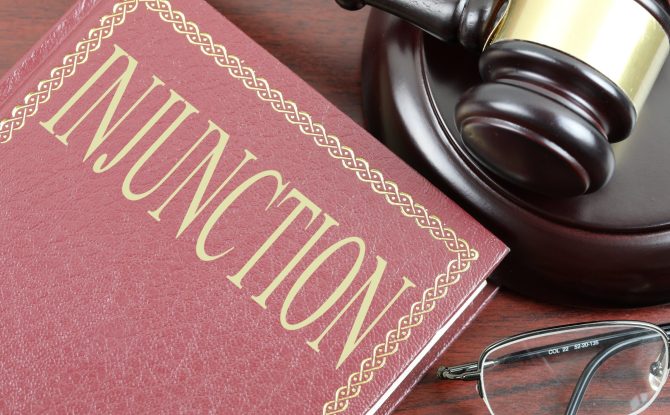Under the Succession Act 2006 (NSW), eligible persons may apply to the Supreme Court of New South Wales for a family provision order in relation to the estate or notional* estate of a deceased person to provide “for their maintenance, education or advancement in life”.
The first hurdle to overcome is being an “eligible person” and the second is whether the provision (if any) made for the applicant in the deceased’s Will** is adequate, and if not, what “family provision order” could be made to make it adequate. Unfortunately, this process is not as simple as we have explained it.
Limitation period
Claims for provision must be made within 12 months of the date of death of the deceased person (although in limited circumstanced, this time limit can be extended).
Process
After proceedings are commenced and the parties have put on the majority of their evidence, applications for family provision orders are generally referred to either a Court annexed mediation or to private mediation but if no agreement can be reached, the matter will be set down for hearing.
Eligibility
Those who are “eligible” to make a claim for a family provision order out of a deceased person’s estate include:
- a spouse of the deceased at the time of the deceased’s death;
- a former spouse of the deceased;
- a person in a de facto relationship with the deceased at the time of death
- children (including adopted children) of the deceased;
- someone with whom the deceased was in a close personal relationship*** with at the time of their death;
- those who have, at any time, been wholly or partly dependent upon the deceased and who either:
- are a grandchild of the deceased; or
- were, at any time, member of a household of which the deceased a member.
How do you know if you are to receive an inheritance?
Click here to read about how to get a copy of a deceased person’s will.
Adequacy
The Court won’t simply rewrite a deceased person’s Will based on claims of justice or unfairness such as unequally dividing an estate between siblings. The Court has a wide discretion in determining these matters and the nature of any order for provision that may be made.
The Court first considers if the gift (if any) was adequate and if not, what provision may be adequate.
The Court exercises is discretion to make an order and if so, on what terms, after considering the following factors:
- any family or other relationship between the applicant and the deceased, including the nature and duration of the relationship,
- the nature and extent of any obligations or responsibilities owed by the deceased to the applicant, to any other person in respect of whom an application has been made for a family provision order or to any beneficiary of the deceased’s estate,
- the nature and extent of the deceased’s estate (including any property that is, or could be, designated as notional estate* of the deceased person) and of any liabilities or charges to which the estate is subject, as in existence when the application is being considered,
- the financial resources (including earning capacity) and financial needs, both present and future, of the applicant, of any other person in respect of whom an application has been made for a family provision order or of any beneficiary of the deceased person’s estate (that is the competing needs/claims of others),
- if the applicant is cohabiting with another person–the financial circumstances of the other person,
- any physical, intellectual or mental disability of the applicant, any other person in respect of whom an application has been made for a family provision order or any beneficiary of the deceased’s estate that is in existence when the application is being considered or that may reasonably be anticipated,
- the age of the applicant when the application is being considered,
- any contribution (whether financial or otherwise) by the applicant to the acquisition, conservation and improvement of the estate of the deceased person or to the welfare of the deceased or the deceased’s family, whether made before or after the deceased’s death, for which adequate consideration (not including any pension or other benefit) was not received, by the applicant,
- any provision made for the applicant by the deceased, either during the deceased’s life or made from the deceased’s estate,
- any evidence of the testamentary intentions of the deceased, including evidence of statements made by the deceased,
- whether the applicant was being maintained, either wholly or partly, by the deceased before the deceased’s death and, if the Court considers it relevant, the extent to which and the basis on which the deceased did so,
- whether any other person is liable to support the applicant,
- the character and conduct of the applicant before and after the date of the deceased’s death,
- the conduct of any other person before and after the date of the deceased’s death,
- any relevant Aboriginal or Torres Strait Islander customary law,
- any other matter the Court considers relevant, including matters in existence at the time of the deceased’s death or at the time the application is being considered.
*Where assets that were previously assets of the deceased prior to death (such as assets gifted or transferred by the deceased to another person or entity prior to death to attempt to avoid an application for an order for provision, superannuation, property owned as joint tenants between the deceased and another person), be considered as an asset of the estate for the purposes of an application for a family provision order.
**Note that even in intestacy (where there is no Will), an application can be made for a family provision order.
*** A “close personal relationship” is a relationship other than a marriage or a de facto relationship between two adult persons, whether or not related by family, who are living together, one or each of whom provides the other with domestic support and personal care but not for reward or on behalf of another person or organization.
FURTHER INFORMATION
For further information in relation to Wills, Probate, Intestacy, Estate Planning or even International Wills, please contact McKillop Legal on (02) 9521 2455 or email help@mckilloplegal.com.au
This information is general only and is not a substitute for proper legal advice. Please contact McKillop Legal to discuss your needs.
Stay up to date – LinkedIn | Facebook | Twitter | Instagram










